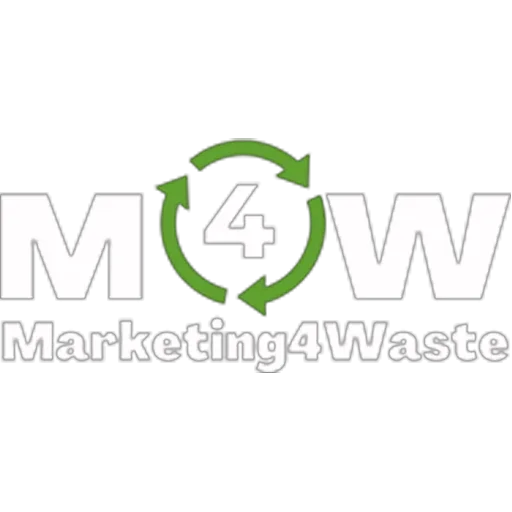Increase the Revenues of Your Waste Company With the Tips Shared in Our Blog Articles

When Company Culture Turns Toxic: Why Who You Hire Matters More Than Any Contract
Business partnerships don’t die because contracts expire.
They die because of people.
Let me explain.
Earlier this year, I found myself in a situation with a client I had served for years. No names needed—you’ll recognize the pattern because it happens every day in our industry.
Here’s the setup:
A long-standing agreement was in place.
I was running the show on the ground—managing customers, ensuring operations didn’t stall, and keeping the machine moving.
Then, in January, the consultancy fee part of the agreement was “paused.” Supposedly to “test” how things would go without it.
And guess what? Nothing changed.
The customers still needed support. The market still demanded responsiveness. So, I kept doing the work. Not because I’m naïve. But because I knew that stopping would damage not only my reputation, but the client’s revenue streams.
Six months later, I sent the bill.
Logical, right? You don’t keep driving someone’s truck for free just because they decided not to put fuel in the tank.
But instead of honoring that bill, they pulled the oldest corporate trick in the book:
“Oh, but the agreement is terminated, so technically we don’t owe you this.”
Meanwhile, not a single communication was sent to their customers saying I wasn’t their point of contact anymore.
In fact, customers confirmed the opposite: I was still seen as the representative.
So, what does that tell you?
It tells you that some companies would rather pretend reality doesn’t exist than confront their own lack of leadership.
And here’s the real poison: instead of managing it professionally, the people inside the company started taking it personally. Calls unanswered. Requests ignored. Sarcastic remarks over the phone about being “too busy” to respond. The silent treatment disguised as “vacation backlog.”
This isn’t business. This is playground behavior.
The Real Problem: Company Culture
Here’s the part nobody wants to admit: the character of a business is revealed not in contracts, but in culture.
Because when a company trains its employees to take business disagreements personally…
When it encourages staff to treat partners like enemies just because lawyers got involved…
When it fails to communicate transparently to customers about what’s actually going on…
That company has already lost.
Not legally. Not financially. But strategically.
Because business is built on trust, and trust is always human.
Why This Matters in Waste Management
Now, you might be thinking: “Sam, this sounds like corporate drama. Why should a waste management entrepreneur care?”
Here’s why: in our sector, margins are tight, deals are long, and relationships are the bridge between your business and your buyers.
If your employees—drivers, sales reps, operations staff—don’t understand the difference between a company dispute and a personal grudge, you’re in danger.
Imagine this:
You’ve built a steady relationship with a manufacturer buying your copper scraps.
A disagreement arises over pricing.
Instead of negotiating professionally, your sales rep stops answering calls because “they pissed us off.”
What happens?
The buyer finds another supplier. And you don’t just lose a deal. You lose market position.
In waste management, your culture dictates your cash flow.
The Dangerous Illusion of Contracts
Here’s a bitter truth: contracts protect you on paper, but culture protects you in practice.
I’ve seen companies obsessed with airtight agreements but rotten inside—employees sabotaging relationships because “the boss said we don’t like them anymore.”
And I’ve seen small firms with loose contracts but strong culture grow into multimillion-dollar players. Why? Because every single person in the company understood this:
👉 Business disputes are not personal.
👉 Customers and partners don’t care about your internal drama.
👉 Respect buys you more revenue than revenge ever will.
The Alchemist’s Lesson
Let me bring this back to you, the waste management entrepreneur.
You want to grow?
You want to sell your secondary raw materials at premium prices?
You want buyers to treat you as indispensable, not interchangeable?
Then build a culture where:
Disputes are handled by leadership, not by gossip.
Employees know their role: serve the customer, maintain the relationship, protect the brand.
Partners are treated as partners—even when contracts shift.
Because here’s the reality: in a world of geopolitical instability, tariff wars, and raw material shortages, the last thing you can afford is losing deals because your team took something personally.
The copper doesn’t care about your ego. The aluminum doesn’t care about your pride. The market only cares: can you deliver?
A Warning
If you allow personal grievances to infect your business culture, you won’t just lose one deal. You’ll start bleeding opportunity.
Customers talk. Partners compare notes. Reputations spread.
And in a sector like ours—where every operator is chasing the same buyers—you cannot afford to be known as “the company that burns bridges.”
Because the companies that survive aren’t the ones with the fanciest recycling plant. They’re the ones whose people can manage conflict like adults.
My Call to You
If this story rings a bell, here’s my challenge:
Audit your culture.
Ask yourself:
Do my employees understand that contracts may change, but relationships must remain?
Do they know how to communicate with professionalism even when leadership is in a dispute?
Have I trained them to separate personal feelings from business obligations?
If the answer is no, then you don’t have a technical problem. You have a cultural time bomb waiting to explode.
And believe me—no CRM price spike, no tariff war, no geopolitical chaos will destroy your business faster than your own people acting like children in the marketplace.
Final Word
Business is conflict. Contracts end. Markets shift. Partners disagree.
That’s normal.
That’s healthy.
That’s reality.
But if your culture turns every disagreement into a personal vendetta, you’re finished.
Because at the end of the day, success in waste management—or in any industry—isn’t about who signs the contract.
It’s about who picks up the phone when the contract is in dispute.
And if your people can’t do that with respect, then you’ve already lost the only resource that really matters: trust.
Here’s My Invitation
Inside the Centurion Waste Alliance, every week we go beyond markets, tariffs, and raw material opportunities. We dive into the hidden levers that make or break a business—and company culture is one of them.
Because if your people don’t understand the rules of the game, no amount of strategy will save you.
👉 If you want to be in a room where business owners and leaders discuss not only how to sell secondary raw materials at premium prices, but also how to build a culture that protects those deals instead of killing them, then this is your chance.
The Centurion Waste Alliance isn’t just about trading—it’s about building companies that last.
To Your Success,
Samuele “Sam” Barrili
The Waste Management Alchemist


© 2025 Marketing4waste - All Rights Reserved,
Marketing4Waste is a brand of MiM MarketingInterimManagers LLC
+1 801 804 5730

